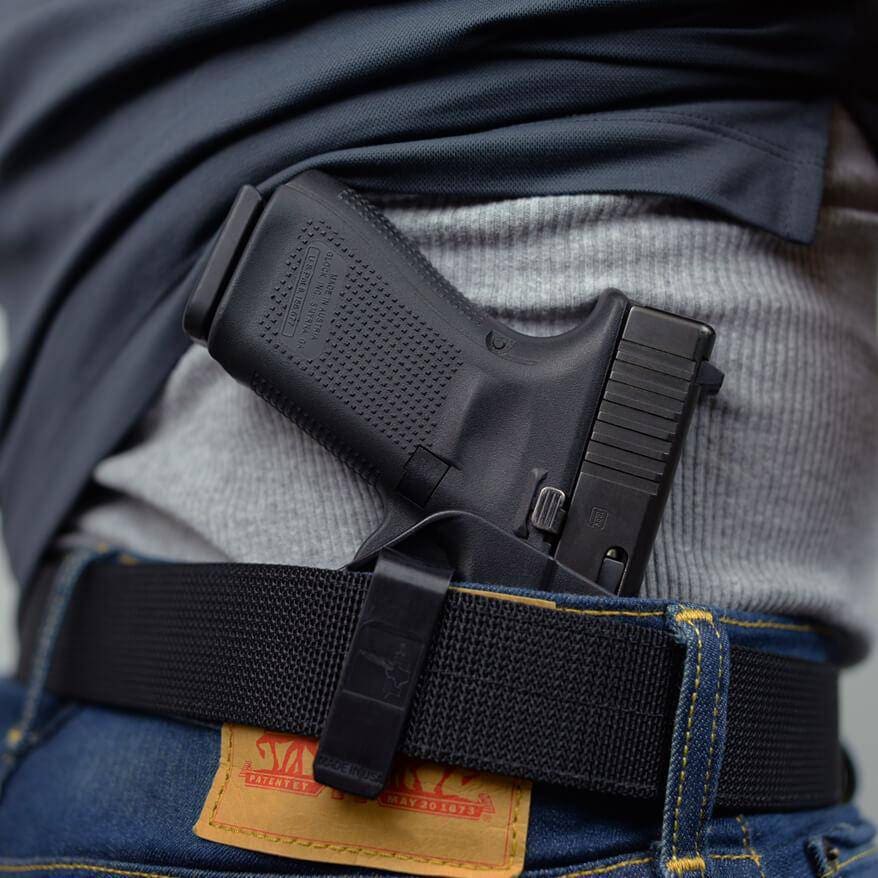Two New Hampshire men charged in separate incidents with unlawful possession of a gun have challenged Massachusetts firearm law. Dean Donnell Jr. and Phillip Marquis are both legal gun owners and residents of New Hampshire, a state that issues carry permits for purposes of reciprocity but otherwise observes constitutional carry, meaning that no license is necessary to open or conceal carry within the state. Attorneys for the men argue that Massachusetts felony charges, under the state’s strict firearm laws, are a violation of their Constitutional rights.
“Massachusetts can’t be less protective than the Second Amendment,” argued Hayne Barnwell attorney for Phillip Marquis.
A District Court judge in Lowell agreed with the defendants on Constitutional grounds, however, Massachusetts prosecutors have filed an appeal, claiming that out-of-state gun owners must obtain temporary permits prior to carrying firearms in the state and are not exempt from local laws. On September 9th, the Massachusetts Supreme Court heard arguments on the disagreement but has not yet said when a decision will be announced.
Top law enforcement officials for each state are also at odds, with New Hampshire Attorney General John Formella arguing in court that enforcing Massachusetts gun laws against New Hampshire residents temporarily crossing the state border may violate their Second Amendment rights.
“For New Hampshire citizens, especially those living in southern New Hampshire, such a strict application of Massachusetts’s laws means that legal, constitutionally protected conduct – namely, carrying a firearm for self-defense – can be transformed into felonious conduct during a routine trip to the grocery store, the mall or to visit a next-door neighbor,” Formella says.
Formella references the Pheasant Lane Mall in arguments, demonstrating how the state’s border divides the mall’s parking lot, a problem for law-abiding New Hampshire residents who legally carry a gun.
“Surely the Second Amendment’s protection of a person’s right to carry a firearm for self-defense is not so fragile as to allow Massachusetts to compel a New Hampshire citizen to choose between exercising his or her right to self-defense and visiting the Buffalo Wild Wings at the Pheasant Lane Mall,” the filing says.
Meanwhile, Massachusetts Attorney General Andrea Campbell has filed an amicus brief noting that she “frequently defends the Commonwealth’s firearm-safety laws against Second Amendment challenges.” Congratulations Andrea, however, I’m curious how any such frequency is relevant or supersedes the liberties granted to all Americans in the Bill of Rights.
“Massachusetts applies its laws evenly to residents and non-residents alike… Nothing in the Constitution prohibits Massachusetts law enforcement officers from enforcing state law within its own borders, simply because someone is from a different state,” says Cambell, who lacks understanding of how the Constitution actually works and to whom it is applicable.
“The motion judge clearly erred in allowing a motion to dismiss in both of these cases where Massachusetts has the authority to implement a uniform licensing scheme to apply to all citizens, regardless of residency,” according to Assistant District Attorney, Ryan Rall.
But does Massachusetts have the authority?
Several states, including Alaska, Kansas, Missouri, Texas and Wyoming, have passed laws that allow residents to build and purchase suppressors within their respective states forgoing any tax stamp or NFA requirements, however, the federal government and the ATF disagree and have made arrests for such violations. In these cases, the feds argue Article VI, paragraph 2 of the Constitution, referred to as the supremacy clause, which states that federal law preempts state law if they conflict on the same subject.
Applying those same rules here, we have a Constitutional law in place, the Second Amendment. The supremacy clause would demand that a Constitutionally guaranteed right supersedes the authority of the state, thus Massachusetts does not have the authority, and its law does violate the rights of not only New Hampshire residents but all Americans.
The resolution here is national reciprocity, as the Second Amendment is a Constitutionally protected right that the federal government is obligated to defend. No state has the legal authority to remove that right by implementing conflicting laws, however, with the feds willing to infringe upon the Second Amendment, you can see where certain states get their audacity.
Read full article here


